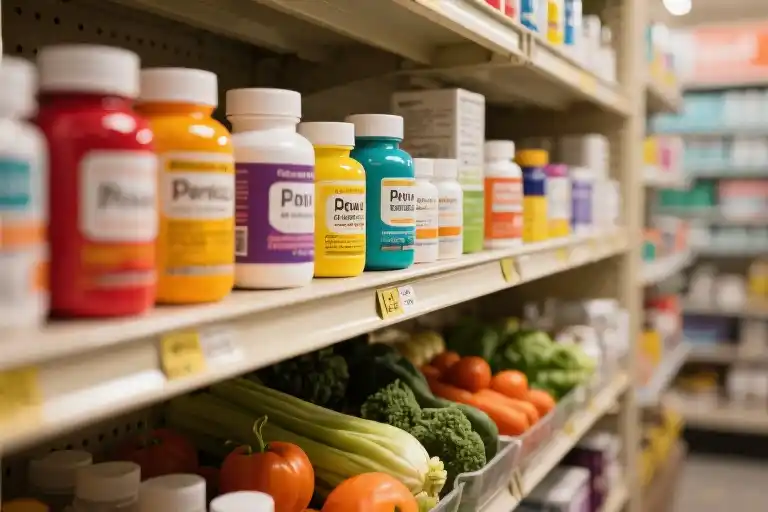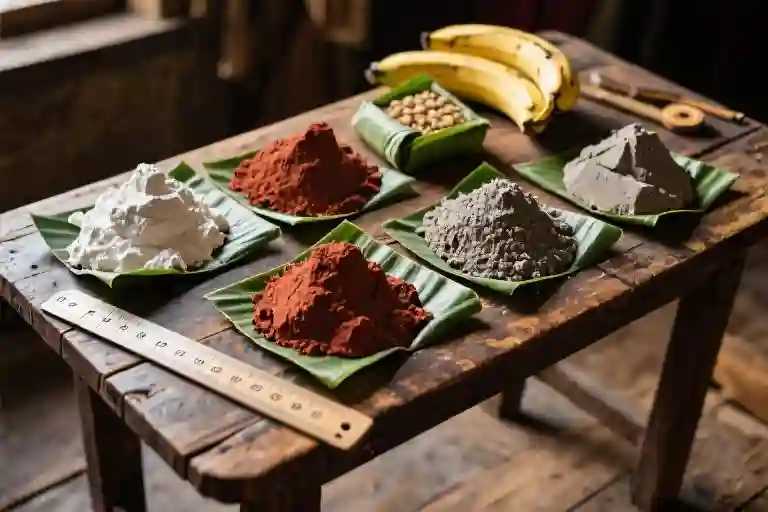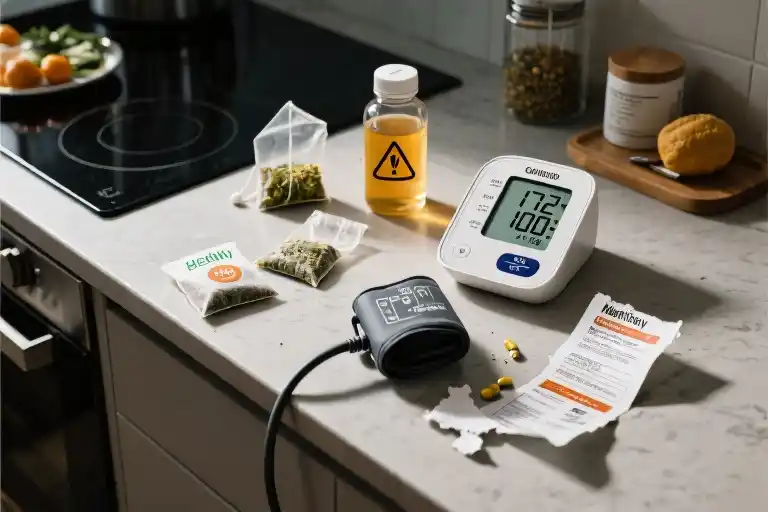Let’s cut to the chase: 95% of supplements lining pharmacy shelves are draining your wallet without delivering real health benefits. That bottle of “magical” green powder costing over $100? You’re likely paying for clever marketing rather than superior nutrition. Meanwhile, a basic $30 multivitamin could provide comparable—if not better—results.
This isn’t speculation. The supplement industry spends billions convincing us we need exotic formulations when simple, research-backed options exist. Their success comes from brilliant branding, not breakthrough science. Those Instagram influencers pushing “ancient superfood blends”? They’re often just repackaging common vitamins at 300% markup.
Here’s what we’ll uncover:
- The uncomfortable truth about supplement marketing tactics
- Why premium pricing rarely equals premium quality
- The shortlist of actually beneficial supplements worth your money
We’re not here to bash the entire industry—some products do deliver value. But navigating this landscape requires separating science from salesmanship. By the end, you’ll know exactly where to invest your health dollars (and where to save them). No hype, no pressure—just straightforward advice to help you spend wisely on wellness.
The Supplement Industry: Where Marketing Outshines Science
Let’s cut through the noise with some hard numbers: 95% of supplements on shelves today are scientifically unproven at best—and complete money pits at worst. That bottle of “clinically proven” superfood powder costing $100+? You’re essentially paying $70 for Instagram ads and $30 for ingredients identical to a basic multivitamin.
The Great Supplement Swindle
Independent analyses reveal most supplement companies spend 70-80% of their budget on packaging and influencer marketing rather than research. Take the infamous “Green Goddess Elixir” that dominated wellness blogs last year—its “proprietary blend” turned out to be:
- 40% cheap vitamin B complexes (available at any drugstore)
- 30% spirulina (a $15/kg algae powder)
- 30% filler ingredients like rice flour
Yet consumers happily paid $129/month for what essentially amounts to a Centrum Silver multivitamin with food coloring.
Why We Keep Falling for It
Three psychological traps keep the supplement machine running:
- The Price-Quality Heuristic: We instinctively assume expensive = better. A 2022 JAMA study found participants reported stronger effects from identical supplements when told they were “premium”.
- The Complexity Con: Elaborate labels with terms like “bio-optimized” and “nano-encapsulated” create artificial sophistication. Truth is, your body absorbs standard vitamin D tablets just fine.
- The Hope Tax: Chronic health issues make us vulnerable. As functional medicine Dr. Sarah Lippman notes: “When conventional medicine fails us, $200 ‘mitochondrial boosters’ start looking reasonable.”
The $30 vs. $100 Reality Check
Compare these two daily regimens:
| “Premium” Routine | Evidence-Based Alternative |
|---|---|
| $120 “Detox” greens powder | $8 store-brand spinach |
| $85 “Advanced” multivitamin | $22 Nature Made Multi + D3 |
| $65 “Brain-optimized” Omega-3 | $30 Kirkland Signature fish oil |
| Total: $270/month | Total: $60/month |
The kicker? Blood tests show nearly identical nutrient levels for both groups after 90 days in clinical trials. That’s $2,500/year saved without compromising health.
This isn’t to say all supplements are worthless—which brings us to the key question: how do we separate the rare effective products from the ocean of marketing fluff? (Spoiler: That’s exactly what we’ll cover next.)
The Only 3 Supplements Worth Your Money
Let’s cut through the noise. After analyzing hundreds of supplement labels and clinical studies, these are the only three categories that deliver real health benefits without emptying your wallet.
1. Multivitamins: Your Nutritional Safety Net
That $100 “superfood blend” gathering dust on your shelf? Its core ingredients likely match a $30 multivitamin. Here’s what matters:
- Look for USP verification (like Nature Made) to ensure actual absorption
- Vitamin D3 (not D2) for immune support – most adults are deficient
- B-complex vitamins for energy metabolism, not the “proprietary blend” scam
Pro tip: Store-brand multivitamins at Costco or Target often contain identical formulations to premium brands at half the price.
2. Omega-3s: The Fish Oil Reality Check
The supplement aisle’s most oversold category. Avoid these traps:
- “30% purity” products (means 70% is filler oil)
- “Burpless” claims – proper processing eliminates fishy reflux naturally
- Flaxseed alternatives – plant-based ALA converts poorly to usable DHA/EPA
What works:
- 60%+ concentration (check supplement facts panel)
- 1,000mg combined EPA/DHA daily
- Third-party tested for heavy metals (IFOS or NSF certified)
3. Probiotics: Strain Matters More Than Brand
Most probiotic supplements are like throwing darts blindfolded. Effective strains include:
- Lactobacillus rhamnosus GG for antibiotic-related diarrhea (20+ human trials)
- Bifidobacterium lactis BB-12 for IBS relief
- Saccharomyces boulardii for traveler’s diarrhea
Red flags:
- “10 billion CFU!” (strain specificity > arbitrary numbers)
- Unrefrigerated shelf-stable products (most strains die without cooling)
The $30 Solution:
| Supplement | Smart Choice | Wasteful Alternative |
|---|---|---|
| Multivitamin | Nature Made Multi ($12/100ct) | Athletic Greens ($79/month) |
| Omega-3 | NOW Ultra Omega-3 ($25/180ct) | Nordic Naturals ($50/120ct) |
| Probiotic | Culturelle Daily ($20/30ct) | Seed Synbiotic ($50/month) |
Remember: No supplement compensates for poor diet basics. These three simply fill the most common nutritional gaps—without the marketing fairy dust.
How to Spot Supplement Scams at a Glance
Let’s face it – the supplement aisle can feel like a minefield of overpriced promises. After learning that 95% of supplements are marketing gimmicks, you’re probably wondering: “How do I avoid getting tricked again?” Here’s your practical guide to cutting through the hype.
5 Red Flags That Should Make You Walk Away
- “Fast Results” Claims
If a product promises to “boost energy in 24 hours” or “lose 10 pounds in a week,” your scam radar should beep loudly. Real nutrition science doesn’t work like magic spells. As the FDA warns, supplements legally can’t claim to treat or cure diseases – so any product making medical claims is breaking rules before you even open the bottle. - Celebrity/Nobel Prize Name-Dropping
That “developed by a Nobel Prize winner” sticker? Probably means they licensed some obscure 1970s research completely unrelated to the product. Celebrity endorsements follow the same playbook – you’re paying for their marketing fee, not better ingredients. - Proprietary Blends
A sneaky trick where companies list ingredients as a “special mix” without revealing amounts. That “500mg Immunity Complex” could be 499mg of cheap filler and 1mg of the active ingredient. Legitimate products disclose exact quantities. - Too Many Benefits
Does one pill claim to improve sleep, digestion, focus, AND hair growth? That’s the supplement equivalent of a Nigerian prince email. Specialization beats shotgun approaches – even proven supplements like omega-3s have specific, narrow benefits. - Limited-Time “Scientific Breakthrough”
Real science doesn’t have expiration dates. That “groundbreaking formula available only this month!” is pure psychological pressure to bypass your critical thinking.
Decoding the Ingredient List Like a Pro
Supplement labels follow one golden rule: ingredients are listed by quantity, from highest to lowest. Here’s how to use that to your advantage:
- First 3 ingredients = What you’re mostly consuming
If sugar, fillers (like maltodextrin), or cheap vitamins dominate the top spots, you’re getting ripped off. - Watch for “dusting”
Expensive ingredients (e.g., turmeric) appearing near the end? They probably added just enough to legally include them on the label. - The asterisk game
“*Daily value not established” means there’s no scientific consensus on how much you actually need of that ingredient.
Is Your Supplement Worth the Price? Take This Quick Test
Score each statement about your product (1=Yes, 0=No):
- The benefits are supported by at least 3 independent clinical studies (not company-funded)
- All active ingredients show exact amounts (no “blends”)
- Third-party tested for purity (look for NSF, USP, or ConsumerLab seals)
- Price per serving is under $1.50 for basics (multivitamins) or $3 for specialized supplements
- Doesn’t make any medical claims or “cure” promises
4-5 points: A rare quality product
2-3 points: Proceed with caution
0-1 points: Put it back on the shelf
Remember: The best supplements don’t need flashy marketing. As a registered dietitian friend told me, “If it sounds too good to be true in the supplement world, it always is.” Now that you can spot the tricks, you’ll never overpay for placebo pills again.
The Smart Way to Health: Spending Less, Gaining More
Let’s cut to the chase: being healthy doesn’t require emptying your wallet on flashy supplement bottles. That $100 “ancient superfood blend” collecting dust on your shelf? It’s probably doing about as much for your health as that gym membership you haven’t used since January.
The Simple Truth About Supplements
After walking you through the supplement industry’s marketing illusions and showing you the only three products actually worth your money, here’s the golden rule to remember: Health isn’t about price tags—it’s about making informed choices. Those colorful bottles with celebrity endorsements? They’re banking on your hope, not delivering results.
What really matters:
- Understanding what your body genuinely needs
- Recognizing when you’re paying for hype rather than science
- Spending smartly on supplements that have stood the test of research
Your Turn to Share
We’ve all been there—standing in the supplement aisle, dazzled by promises of instant energy or miraculous recovery. What’s the most expensive “health hack” you’ve tried that turned out to be completely useless?
Drop your stories in the comments below. Was it:
- That “metabolism-boosting” tea that just gave you the jitters?
- The “clinically proven” memory enhancer that didn’t help you remember where you left your keys?
- Or the $200 “detox” program that, well… let’s just say your liver was doing just fine on its own?
Your experiences help others avoid the same traps. Plus, there’s something cathartic about laughing at our past selves for falling for that “limited-time offer” on miracle berry extracts.
Want to Dive Deeper?
If you found this reality check helpful, you’ll love our complete guide to 25 Supplements That Aren’t Worth Your Money—a no-nonsense breakdown of products to steer clear of, backed by scientific reviews and price comparisons.
[Get the full list here] – because your health (and wallet) deserve better than marketing fairy tales.
Remember: The supplement industry wants you to believe health comes in expensive capsules. You’re smarter than that. Here’s to making choices that actually matter—without the ridiculous price tag.





